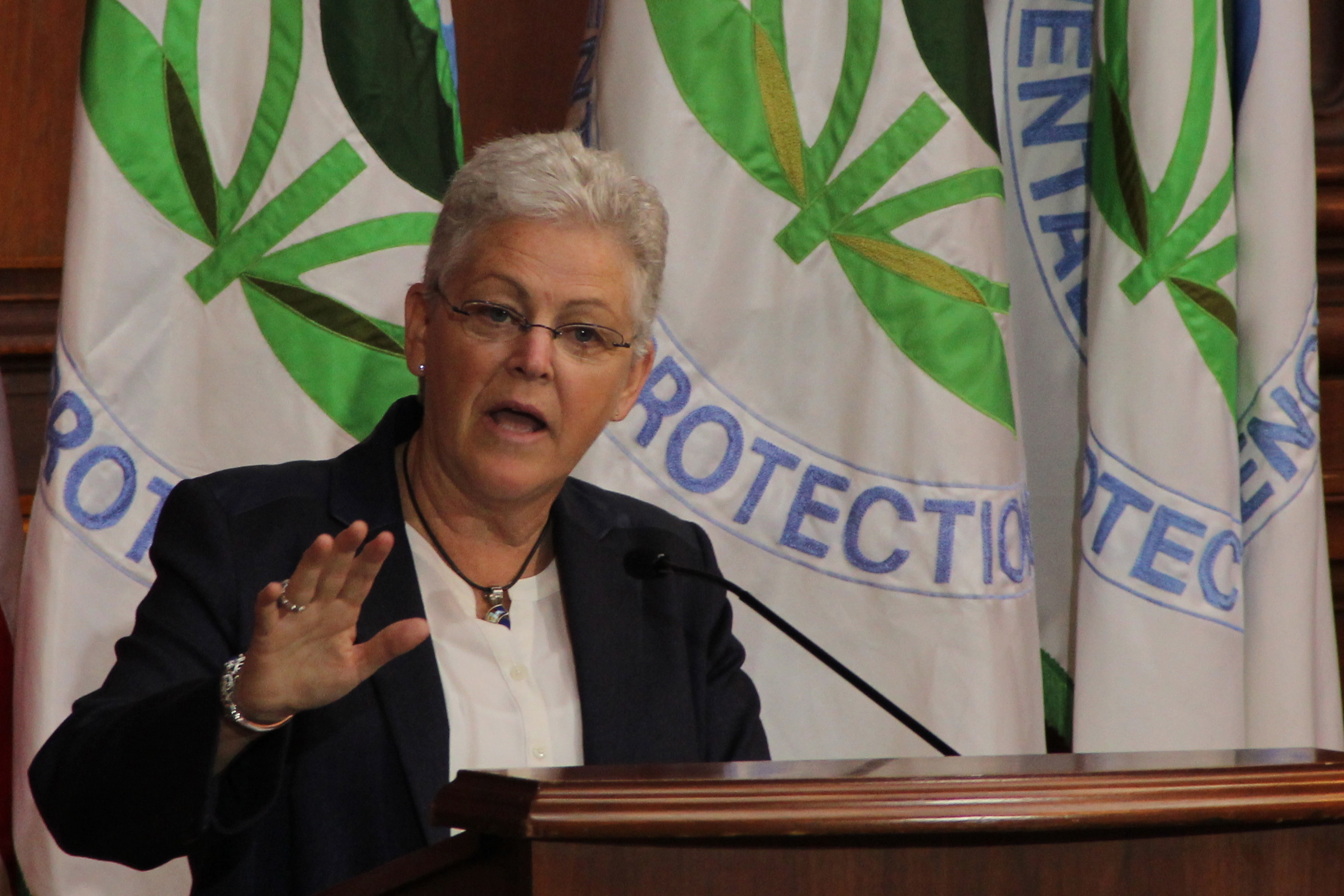WASHINGTON – With a few quick strokes of her pen, Environmental Protection Administration chief Gina McCarthy signed a draft regulation Monday morning to cut carbon emissions from coal plants 30 percent by 2030.
Power plants produce the most carbon emissions of any carbon source in the country, and this would be the first regulation to address emissions from them.
“This is not about polar bears and disappearing ice caps,” McCarthy said during a press conference. “For the sake of our family’s health and our kids’ future, we have a moral obligation to act on climate.”
The regulation, called the Clean Power Plan, is part of President Barack Obama’s Climate Action Plan and is intended to move power plants toward clean energy sources and cutting energy waste. The draft is now up for a 120-day comment period and public hearings will be held throughout July around the country. The regulation is not set to be finalized until next June.
Under the proposed regulation, every state would be required to set their own plans to meet the required 2030 reduction goals. States could formulate their own plans or partner with other states.
The 30 percent decrease is based on plant emission levels from 2005. The amount of emission reductions will be equivalent to two-thirds of the emissions from cars and trucks in America, McCarthy said.
With climate change leading to health problems and more natural disasters, McCarthy said, the new regulation will save money on many fronts of the American economy. “The most costly thing we can do is nothing,” she said.
For instance, she noted that children with asthma may need extra care if their towns’ air quality is bad, one of the many health consequences that can drive up costs of medical care.
Climate scientist Richard Alley of Penn State University, in a email interview, said that while he does not endorse any specific federal regulation as a rule, reducing carbon emissions would have positive impacts beyond the environment.
“Extensive scholarship shows that the climate changes from the CO2 emitted to the air by our fossil-fuel burning will have economic costs—the ‘social cost of carbon’ —and thus that actions to reduce CO2 emissions can make us better off economically,” Alley said.
McCarthy noted that opponents’ complaints that the plants will have to spend more to reduce emissions ignores long-term benefits.
“We’re not doing cutting-edge work here folks,” McCarthy said before signing the regulation. “We’re opening the doors for cutting edge to happen.”

